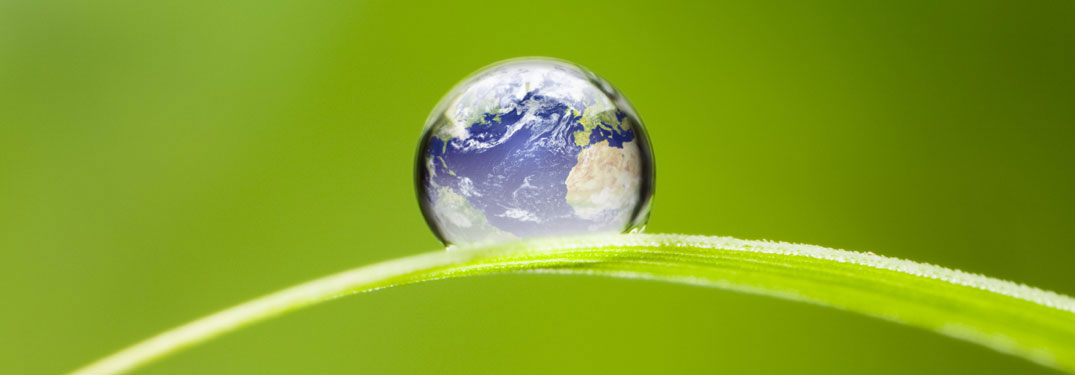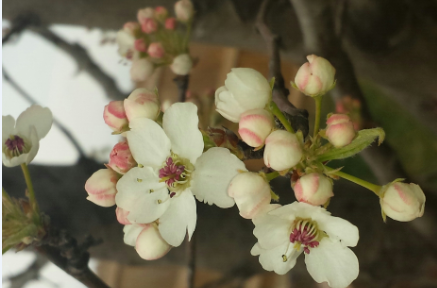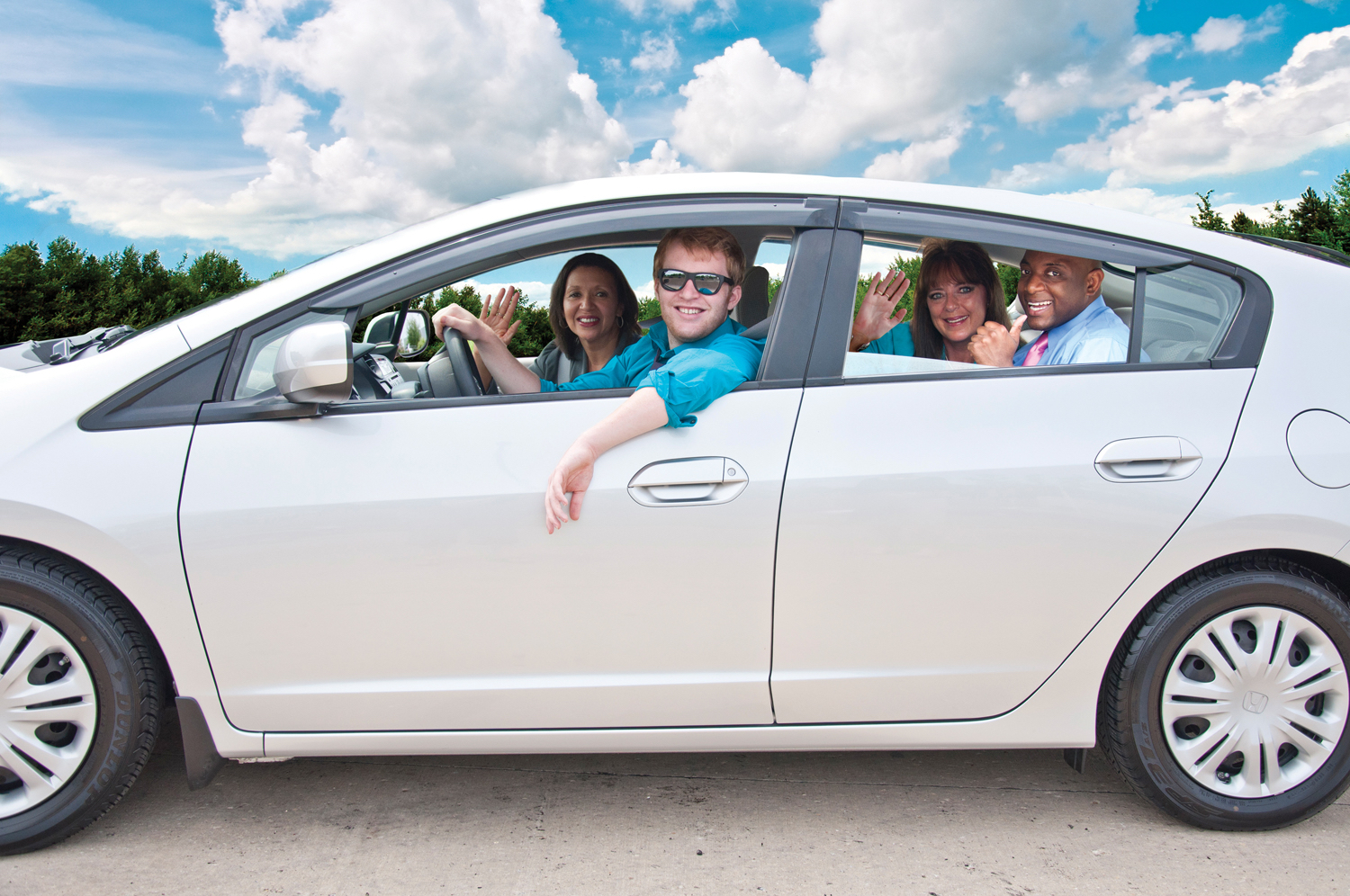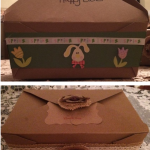Sustainability Master Plan Update, part deux
By Melanie Stewart
In last week’s article I promised to provide updates in each of the goal areas of the Sustainability Master Plan. We’ve already discussed the changes to a few baselines and the incredible achievements in the energy, water, and emission goals here.
One goal you may not have heard much about is Campus Engagement. Campus Engagement is a rated score of how much the campus population knows about and is involved in sustainability efforts on campus. We determine this score via survey results, plus interaction and participation at events. Our baseline score was 45, the goal is 75, and our newly updated score is 52. While I’m pleased with the increase in score, I look forward to the campus at large learning more about sustainability on campus and how it directly ties to UNMC/Nebraska Medicine and the work that we do.
The Campus Planning goal is to maintain the baseline campus density of 73,327 square feet per developed acre. Makes perfect sense, right? I didn’t think so. In a nutshell, this goal encompasses the entire campus footprint: building up instead of sprawling out, planning and maintaining quality greenspace, designing avenues for safe, active transportation on campus, and incorporating high-quality public spaces to encourage interaction and support healing. Deconstruction processes when buildings are replaced involve recycling used materials instead of sending them to the landfill. These efforts encourage interaction and support healing, making this a better place to work, go to school, and receive care. We have moved away from this goal, but this is largely due in part to the current amount of construction taking place on campus.
The Food Services goal is ambitious: to remove 90% of the materials, by weight, from the waste stream. Currently cafeteria/food prep staff is recycling behind the scenes; large tin cans, oversized bottles, and consumer materials are recycled if possible. Styrofoam will be phased out as a part of this goal. The students helped to kick this off by passing a Styrofoam-free resolution and Sodexo has already started the transition by replacing cups and soup bowls with paper versions. Multiple options are being considered for clam shells and other items, helping to meet this goal but still maintaining safe food temperature and infection control standards while allowing food to be transported.
Sustainability Master Plan Update
By Melanie Stewart
If you have been reading this column, we know you are already aware that the UNMC and Nebraska Medicine 42nd and Dewey campus is working to meet goals outlined in the Sustainability Master Plan (SMP).
As we move forward, it’s important to provide you with a report on the progress we have made in all areas. The next few articles that are written here will provide updates and explanations in all eight areas of focus.
Before we can do that, it’s important to note that several baselines in the SMP have been updated. I bring this up because we want to be 100% transparent about what is happening.

One of the goals of the SMP is to improve on-going data tracking. The outcome of these improvements is more accurate data tracking and newly available data to inform progress toward meeting SMP goals. The baselines were changed because this new, more accurate data recently became available. Baseline changes were made in a unit of measure: the original water baseline showed that we used 206,130,100 gallons of water per year. With improved data our new baseline is 225,164,787 gallons per year, a 9.2% increase. The goal of reducing by 10% has not and will not change, but technically this makes the goal more difficult to achieve as the volume of water we need to “save” is larger.
New, more accurate data resulted in updates to five of the 2010 baselines: energy, emissions, water, materials, and recycling. Transportation and engagement baselines remained the same. The food services goal does not have a specific baseline.
We’ve already provided you with the first update on energy, water, and emissions.
You can read about these achievements in UNMC Today and Nebraska Medicine NOW, as well as the Omaha World Herald. In addition, the Chancellor’s video with Chad Doane discusses why sustainability is important for us to attain as a school, business, healthcare provider, and community leader, and how important it is that we meet these specific goals.
This is a fantastic accomplishment and something for everyone to be proud of. We will continue to strive to meet the secondary goals in these categories.
RePurpose It Contest Winners Announced, Feedback sought
By Melanie Stewart
This year brought us an extended version of Earth Week, with an extra day of fun! We celebrated goals, saw how creative and resourceful people can be in the RePurpose It contest, collected items from your home for appropriate recycling, brought you lots of subject matter experts to answer your questions and provide you with information (and free stuff!), planted a tree, gave away free trees and seeds, and last but not least, helped a local charity plant seeds so families in need have access to fresh veggies.
So, we want to know what you thought! Please click on the link below to take our 2 minute survey. Your feedback will help us to know what to do, or not do, next Earth Week and what changes we can make so it’s even better.
https://www.surveymonkey.com/r/G25YWQ2
RePurpose It Contest Winners:
- Grand Prize, Winner of Popular Vote:
- #18 Grace Johnson, Physical Therapy Education; Copy paper box into standing desk and storage
- Receives a 20 minute chair massage from the Wellness Center ($20 Value) and $25 Gift Card to Union Junktion Store.
- Second Place:
- #1 Nichole Niehus, Interventional Radiology; Pallet into wine rack
- Receives a $25 Gift Card from Paradigm Gardens
- Winner selected by Habitat for Humanity Restore:
- # 24 EVS “Brighten Your Day Committee” Debra Duke, Olga Echevarria, Tami Howell, Louis Liddick, Peter McClure, Debra Roberts, Kathy Struck, Annette Traurig, & Marie Weilandt; Wooden hangers into a lamp
- Receives a Habitat Restore $25 gift certificate
- 2 Winners selected by LiveGreen Committee:
- #10, Rachel Meyer, OHSCU; Chest of drawers/shelving systems into dollhouse with carport
- Receives a gift certificate to The Company Store
- #5, Saralyn Fisher, INBRE Program; Old door, table, shelves, and trim into potting bench
- Receive a UNMC Bookstore Prize Pack
- Winner selected by Verdis Group:
- #19 Cassandra Recek, General Supply; Cardboard packing material into seed starting trays
- Receives an ALTER EGO personal water filtration duo, courtesy of Pulp–Paperie and Gifts
We’ll get information gathered from our recycling event, the rest of Earth Week and the effect it had, and bring that to you in a future article.
Thanks for helping to make Earth Week a success and for your valuable feedback.
Earth Week is Here

By Melanie Stewart
Earth Week is finally here! Start the week off with Earth Day this Friday the 22nd and end on a high note with Arbor Day on the 29th.
Here’s everything you need to know:
Friday, April 22nd
We’ve made phenomenal progress on the energy and water goals in our Sustainability Master Plan and we are excited to tell you about it! Look for more information in Nebraska Medicine Now and then visit us in front of the Nebraska Café or Storz Pavilion for a fun demonstration and pick up a free item that will help you save energy at home.
Monday, April 25th:
The RePurpose It Contest has some really great projects to show off. Your colleagues are incredibly talented and creative! Many entries will inspire you to look at items you have in your home a different way; helping to save you money and reduce waste. Pages are not open yet, but you will be able to see the entries here and vote here.
Tuesday, April 26th 12pm-6pm and Wednesday, April 27th 6am-12pm:
Have items at home you need to get dispose of, and can’t put in the trash? We will accept:
- Personal electronics to recycle; hard drives will be shredded. Most items will be free, but there will be a nominal cost for tube TVs, CRT monitors, and hard drives.
- Free personal document shredding.
- Free personal single use alkaline battery recycling.
- Free ‘techno trash’ recycling
- Eyeglasses will be collected for donation to those in need.
- Have pop tabs for Ronald McDonald House? Bring those too!
Click here for complete information
Thursday, April 28th 11:30am-1:30pm, in Lower Storz:
The Sustainability Expo will give you the opportunity to talk to representatives from over 30 different groups. Ask a master gardener a question, find out about B-Cycle plans, learn more about recycling, rain barrels, or even bee keeping. We’ll have door prizes, attendance prizes, and free food to taste-test. Check our webpage for a complete list.
Friday, April 29th 11:30am, Michael Sorrell Green Space
We will celebrate Arbor Day and our status as a Tree Campus USA by planting a tree, giving away free trees and wildflower seeds, and helping City Sprouts plant veggies for the food bank! Check our website for more info.
No matter what your interests are, there will be something for everyone at this year’s Earth Week Celebration and we hope to see you there!
Hugelkultur
By Anne Rivas
When we moved here four years ago, I was excited about Omaha sending yard waste to a composting facility. I put my sticks out for pickup with a clear conscience, and composted almost everything else at home. Now the city is considering an amended contract with the waste hauling that will permanently send yard waste to the landfill. The methane generated by the landfill is used to create power, but I’d rather not create that power with something that can nourish life. Watching organic waste become rich soil deepens my faith in the transformative power of rot, and being part of a city that values the production of fertile soil is important to me. I am deeply disappointed by this suggested change in direction.

So what do we do now with our sticks, branches, and woody prunings? We can run them through chippers to create our own mulch. Or, as self-appointed Compost Queen, I suggest we use them in hugelkultur garden beds.
Hugelkultur means “hill mound,” or “hill culture.” It’s a form of composting that allows us to use leftover firewood, the branches and sticks that fall from our trees every time the wind blows (and when isn’t the wind blowing?), kitchen scraps, yard waste, and garden waste. Start with a layer of logs on the bottom, and then build a lasagna pile of sticks, leaves, grass clippings, kitchen scraps, paper, and compost, ending with a layer of dirt covered by a layer of mulch. You can plant in it immediately.
Piling the materials into a mound gives you a larger gardening surface without taking more horizontal space. The branches aerate the soil as they decompose, and the wood holds moisture that is released as the bed dries out, reducing the need for irrigation. The mound will diminish as it decomposes. A well-built hugelkultur bed can last 20 years or so without irrigation or fertilizer. Some intensive work at the beginning will pay dividends for years to come.
I love reading well-written homesteading blogs and have watched this movement grow over the years, but there are limits to what we can each accomplish alone. By working together on the municipal level through city composting, community gardens, seed libraries, and other common efforts, we will accomplish more than any of us can do by ourselves.
Spring Has Sprung

By Melanie Stewart
I’m sure I shouldn’t be happy about the fact that we are (again!) having unseasonably warm temperatures, but it’s hard not to be excited about Spring! I love getting out to enjoy the sunshine, watching everything turn green again, seeing early spring flowers emerge, trees flower, and the bright yellow forsythia.
Yay Spring!
Thinking about starting a garden, expanding your current garden, or planting something new? LiveGreen can help!
We recommend starting with a garden plan. You can find free resources online, but often a spreadsheet or notebook will work just as well. Plan where you want to plant, noting sun and water conditions. This is a great place to keep notes during the growing season; recording what worked and what didn’t as well as where you placed vegetables that need to be rotated annually.
If you have plants to split or are looking for new plants check out Benson Plant Rescue. They take damaged or overstocked plants from local retailers, as well as personal donations, care for them and then sell them at a discount. They also sell pots, decorations, and cheap(er) earthworm castings to use as fertilizer. All proceeds help to buy books and technology for children at Omaha Public Libraries, while keeping materials out of the landfill.
The Nebraska Statewide Arboretum is associated with UNL and promotes knowledge and appreciation of all plants in Nebraska. To support this mission they host their annual “Spring Affair,” on April 23rd. It’s the largest gardening event in the Midwest. They have more than 500 varieties of plants (perennials, natives, trees, shrubs, herbs), talks, garden groups, and vendors all in one location.
Have a question about your garden/yard or plant and need an expert? Our Sustainability Expo on April 28th during Earth Week, will feature a Master Gardener and an Arborist from the extension office. Bring your questions and, if possible, a cell phone pic of the problem and they can help with whatever you need. There will be lots of other experts on hand too. Please see our website for information.
I know many of us suffer from allergies, but don’t let that stop you from enjoying the great outdoors! If over the counter remedies don’t work for you, there are experts at both UNMC and Nebraska Medicine that can help!
Zimride Contest Winners

By Melanie Stewart
During a four-week timespan beginning in February, UNMC and Nebraska Medicine staff and students were invited to post a carpool to Zimride, the campus free carpool matching service. Those who posted a new ride during that time were entered into a Zimride contest, with a chance to win one of 5 prepaid MasterCards worth $25 each. More than 100 of you gave it a try, and Zimride chose winners at random. The winners are:
- Emily Chapman, Truhlsen Eye Institute
- Marion Entz-Harris, Lied Hospitality
- Karissa Scott, MMI Cytogenetics
- Amanda Fletcher, Clinical Research Center
- Erik Zingler, M.D., Ophthalmology and Visual Sciences
We shared the love with our “early adopters” and 2 people who had posted rides prior to the contest each received a Nebraska Medicine/UNMC Prize-Pack.
- Victoria Halinski, Procurement
- Loretta England, Heart Center Clinic (who formed a 3-person carpool!)
If you missed your opportunity, don’t fret. You can still find a carpool partner, and that’s the real win. You can save money, wear and tear on your vehicle, save personal time, possibly park closer than you do now, and help to reduce air pollution and traffic congestion in Omaha.
Did you know that Zimride:
- Is only visible to people who work here?
- Is free?
- Doesn’t require you to respond or interact with any potential matches?
- Allows you to post additional details (music preferences, car type, etc.) in order to find a good match?
Both carpoolers can, but don’t have to, turn in their parking permits and park for free in one of the lots they were already assigned to…no downgrading.
If carpooling isn’t your thing, TravelSmart has other options that may work for you. You can walk, ride the bus, or bicycle. Bus rides, including transfers, are free as long as you are travelling to or from campus. Free access to showers and locker rooms is provided, and all participants are eligible for a free emergency ride home so you are never stranded. The free emergency ride home allows one stop, should you need to pick up a child or dependent.
You don’t have to give up your parking permit to participate, but you can in order to save money. On the days you need to drive to campus, you can use Daily Rate Flexible Parking. Just $3 for the entire day allows you to come and go as necessary.
Questions? Email: TravelSmart@unmc.edu
RePurpose It and Earth Week Rides Again
By Melanie Stewart
Let the countdown begin, Earth Day is exactly one month away!
I know you’re all as excited about that as we are, and we hope you will find our lineup of Earth Week activities fun, informative, and potentially prize-winning!
That’s right, today is the first day you can submit your entries for the RePurpose It contest! If possible please send before and after photos with a brief description of what the item was originally and is now. For complete  information and helpful tips to give you the best chance of winning, please visit our RePurpose It contest webpage.
information and helpful tips to give you the best chance of winning, please visit our RePurpose It contest webpage.
If you missed our earlier Earth Week announcement lineup and are panicking because you don’t have your project ready to go, don’t worry. There is plenty of time to complete and submit your project so that you have a chance to win. Don’t have a project in mind? Concerned that you’re not crafty, or handy with tools? Good news—you don’t have to be! Visit our RePurpose It Pinterest page to find no-tool/no-special-skill-required ways to repurpose items and make your life easier!
While you are planning for the contest, remember to gather up any electronic items, techno trash or batteries you’d like to recycle (did you change your smoke detector batteries at daylight savings time?), plus papers you want shredded. You can bring all of that to us on one of two (yes, two) days during Earth Week, and disposal of most items will be free of charge. Please see our website for full details.
We will have a bigger, better, indoor Sustainability Expo on Thursday during your lunch hour, with representatives from at least 28 different groups. There will be information on sustainable campus projects, and experts will be on hand to answer your questions and provide information for your home, lifestyle, garden, and yard. It’s all free, and we’ll have food samples, lots of door prizes, and a grand prize for visiting the tables!
You would think those three events would be exciting enough, but wait, there’s more! Come to our campus Energy Goal Celebration with freebies to help you save energy at home, our Arbor Day Celebration with free trees and wildflower seeds, and help City Sprouts plant seeds for a community garden.
See you there!
Revisiting the 5 R’s
By Melanie Stewart
There is an ongoing discussion in Omaha over what to do with yard waste. For most of the past year, it has been taken to the landfill to eventually provide power by burning methane. Before that, it was composted and sold as Oma-Gro. Yard waste was combined with trash in the landfill as a temporary answer to a shortage of CDL-licensed drivers.
Two new proposals to manage trash and yard waste are being considered, and while neither one includes composting, both involve limiting the amount of trash and yard waste collected.
One of the proposals includes every household in Omaha getting two 96 gallon carts with lids, one for trash and one for recycling. Automation would improve the efficiency of pick-up; the trucks could be powered by compressed natural gas, it might result in more recycling, and this should cut down on litter, all of which are positive.
But what about households that discard more than 96 gallons of trash each week? That’s a lot of trash, but easy to achieve when yard waste is included.

Until now, very little attention has been paid to reducing the amount of materials we discard. Each of us has probably at one time or another complained about “putting a bandage” on a problem instead of dealing with the big picture.
Could this be one of those cases? Could we be the solution?
In LiveGreen’s article on the 5R’s, we read that long before we get to recycling, landfilling, or even composting, we can “refuse, reduce, and reuse.” After that, we can recycle, rot (compost), and then send the rest to the landfill.
In order to reduce the amount of trash leaving our homes we generally have to reduce the amount of materials coming in. This can be done a variety of ways; by taking reusable bags to the grocery store, buying fresh local produce instead of prepackaged items, buying only what we need, and using a water filter instead of bottled water. Don’t get me wrong, we’ll still create some waste, but it’s amazing how little effort it takes to produce a little less. With a little more effort it’s impressive what we can do…and having free compost for the yard is great! Generally speaking, these choices are healthier, benefit the members of our households, and more of our money stays here, strengthening our local economy.
Styrofoam Stymied

By Melanie Stewart
Styrofoam is a cheap, light-weight material that is very good at insulating. This makes it a practical option for everything from protecting objects during shipping to keeping your beverage warm.
That’s the (small) upside. The downside:
- The manufacturing of Styrofoam:
- Produces toxic chemicals (from 57 chemical byproducts) that are irritants to skin, eyes, and gastrointestinal and respiratory tracts.
- Chronic exposure can lead to reduced kidney function, blood disorders, depression, headaches and extreme fatigue.
- Contributes to ground level ozone, a dangerous pollutant that’s affecting Omaha
- It’s main component is styrene, which has been classified as a human carcinogen by the EPA and International Agency for Research on Cancer
- The EPA named styrene manufacturing as the 5th largest creator of hazardous waste.
- There are almost no avenues for recycling Styrofoam; it’s a major component of litter and doesn’t breakdown in landfills.
But let’s get back to the good news.
The campus Sustainability Master Plan has a stated goal of reducing food service waste by 90%, which includes eliminating the use of Styrofoam. The Student Senate passed a resolution to have the campus go Styrofoam free in 4 years. UNL recently passed a similar resolution and all four University campuses are currently working to reduce use and eventually become Styrofoam free. Doing so here helps this campus to fulfill our health oriented mission.
I’m excited to report that the transition is already taking place. Coffee cart cups are already cardboard and the cups in the cafeteria and C-Stores are being switched from Styrofoam to cardboard. You’ll start to see that change this week and it will continue across campus.
Sodexo is committed to finding other options for plates and to-go containers. As they do so, it is important to note that we aren’t just a campus. We are a healthcare institution that must adhere to infection control guidelines. We serve a lot of visitors and on-campus personnel that take food out of the cafeteria. That food needs to be safely transported at a proper temperature. We are looking for options that work for everyone.
In the meantime, YOU can make choices to help. At the cafeteria, consider a plate instead of a clamshell, they have almost 65% less Styrofoam. When purchasing for your department, e-Shop now has alternatives to Styrofoam. Don’t forget reusable containers—they’re even better.
